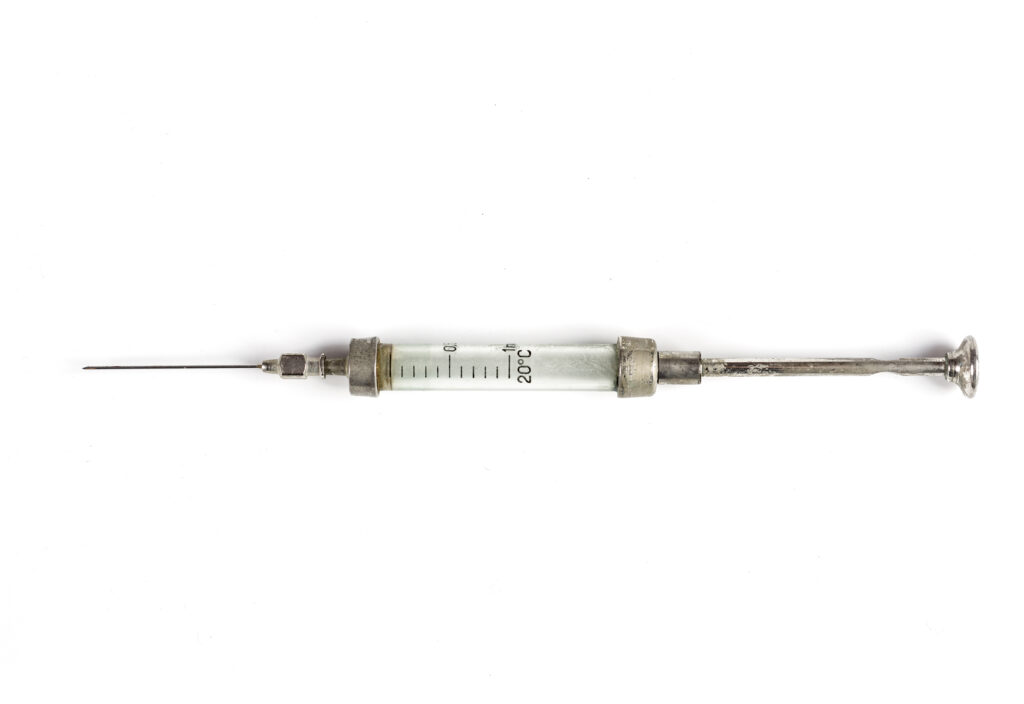In the realm of sports, fitness, and bodybuilding, there exists a topic that has garnered both fascination and controversy for decades – anabolic steroids. These compounds have, at various times, been hailed as the keys to unlocking unparalleled muscle growth and athletic prowess. Yet, they have also been shrouded in misconceptions and concerns about their safety and ethics.
Whether you’re an experienced bodybuilder seeking to optimize your regimen or someone curious about the potential of these compounds, we’ve designed this series to be your comprehensive guide. Our goal is to empower you with accurate information, ensuring you have the tools to make choices that align with your fitness goals and values.
What Are Anabolic Steroids?
Anabolic steroids are synthetic substances that mimic the effects of naturally occurring hormones, specifically testosterone. They belong to a class of compounds known as androgens, which are responsible for the development of male sexual characteristics such as muscle growth, facial hair, and a deep voice.
Here’s a closer look at what anabolic steroids are and how they function:
Definition and Purpose: Anabolic steroids, often simply referred to as “steroids,” are engineered in laboratories to replicate the anabolic (muscle-building) properties of testosterone while minimizing its androgenic (masculinizing) effects. This design makes them attractive to athletes and bodybuilders seeking to enhance their physical performance and appearance.

Key Characteristics Of Steroids:
- Anabolic Effects: Anabolic steroids primarily promote the growth and repair of muscle tissue. They do this by increasing protein synthesis within muscle cells, leading to greater muscle mass and strength.
- Androgenic Effects: While anabolic steroids are engineered to minimize androgenic effects, some degree of masculinization can occur, especially with high doses or prolonged use. This can result in side effects like deepening of the voice, facial hair growth, and changes in libido.
Medical Uses vs. Non-Medical Use
It’s important to distinguish between the medical use of anabolic steroids and their non-medical use. In the medical field, these compounds are prescribed to treat conditions such as testosterone deficiency, delayed puberty, and certain types of anemia. When used as prescribed by healthcare professionals, they can provide valuable therapeutic benefits.
However, outside of medical supervision, anabolic steroids are often used for non-medical purposes, including:
- Enhancing athletic performance.
- Accelerating muscle growth.
- Aiding in recovery between workouts.
- Achieving a more defined physique.
Understanding the intricacies of these compounds is essential for anyone considering their use or seeking to navigate the complex world of fitness and bodybuilding.

A Brief History Of Anabolics
The history of anabolic steroids is intertwined with the evolution of sports and fitness. Understanding this history provides crucial context for appreciating the role of these compounds in contemporary athletic and bodybuilding culture.
Early Discoveries: The roots of anabolic steroids can be traced back to the early 20th century when scientists began experimenting with testosterone. In 1935, the German chemist Leopold Ruzicka synthesized the first artificial version of testosterone, a landmark achievement that paved the way for the development of synthetic anabolic steroids.
Medical Applications: During the 1940s and 1950s, researchers recognized the potential therapeutic benefits of anabolic steroids. These compounds were initially used in medical settings to treat conditions like testosterone deficiency and promote tissue growth in patients recovering from surgery or illness.
Sports and Performance Enhancement: In the decades that followed, athletes and bodybuilders started to take notice of the muscle-building properties of anabolic steroids. The 1954 World Weightlifting Championships in Vienna marked one of the earliest instances of reported steroid use in sports. Athletes sought an advantage in strength and performance, leading to the clandestine use of these substances.
Controversy and Regulation: As the use of anabolic steroids in sports became more widespread, concerns about their fairness, safety, and ethics emerged. This led to various sporting organizations and authorities implementing anti-doping policies and drug testing protocols.
In response to the growing use of steroids outside of medical contexts, governments around the world began regulating their production and distribution. Anabolic steroids were classified as controlled substances in many countries due to their potential for misuse and health risks.
The Modern Landscape: Today, anabolic steroids remain a topic of considerable debate and interest. While their non-medical use is prohibited in most sports, they continue to be used by some athletes and bodybuilders seeking to optimize their performance and physique.

Benefits of Using Steroids
Anabolics have long been associated with muscle growth and enhanced physical performance. While their use is subject to various regulations and restrictions, it’s essential to understand the potential benefits they can offer when used responsibly and under medical supervision.
Muscle Growth and Protein Synthesis
One of the primary benefits of anabolic steroids is their ability to stimulate muscle growth. They achieve this by increasing protein synthesis within muscle cells. This means that the body becomes more efficient at using dietary protein to build and repair muscle tissue. As a result, individuals using anabolic steroids may experience accelerated muscle development.
Increased Strength and Power
Canadian Anabolics are also known for their capacity to enhance strength and power. They can help athletes and bodybuilders lift heavier weights and perform more reps during workouts. This increased strength can be especially advantageous for those seeking to break through plateaus and achieve new fitness goals.
Improved Recovery
Roids can reduce the time needed for muscle recovery. This means less downtime between intense workouts, allowing individuals to train more frequently and with higher intensity. Quicker recovery can also aid in injury prevention.
Enhanced Endurance and Performance
Some Canadian athletes turn to anabolics to improve endurance and overall athletic performance. This can be particularly beneficial in sports that require prolonged exertion, such as long-distance running or cycling.
Body Composition
Steroids can help individuals achieve a more favorable body composition by reducing body fat and increasing lean muscle mass. This effect is often sought by bodybuilders during cutting phases.
Medical Applications
In the medical field, anabolics have legitimate uses. They are prescribed to treat conditions such as testosterone deficiency, delayed puberty, and muscle wasting in patients with chronic illnesses. In these cases, anabolic steroids can improve quality of life and overall health.

Risks and Side Effects of Anabolic Steroids
While anabolic steroids offer potential benefits, they are not without risks. Understanding these risks is crucial for making informed decisions about their use. Here are some of the potential side effects associated with anabolic steroids:
Hormonal Imbalance
Anabolic steroids can disrupt the body’s natural hormonal balance, leading to a decrease in the production of testosterone. This hormonal imbalance can result in testicular atrophy, decreased sperm count, and, in some cases, infertility.
Cardiovascular Issues
Long-term use of anabolic steroids may increase the risk of cardiovascular problems, including high blood pressure, heart disease, and stroke. They can also alter cholesterol levels, leading to unfavorable changes in the ratio of “good” (HDL) to “bad” (LDL) cholesterol, which can further contribute to heart issues.
Liver Damage
Oral anabolics are processed by the liver, and excessive use can strain this vital organ. This strain can lead to liver damage, including conditions like jaundice and, in rare cases, liver tumors.
Mood Swings and Psychological Effects
Users may experience severe mood swings, increased aggression, irritability, and even episodes of depression or anxiety. These psychological effects are commonly referred to as “roid rage.”
Acne and Skin Issues
Skin problems are a common side effect of steroids. Users may develop acne, often on the face, chest, and back, as well as oily skin. In some cases, severe cysts or abscesses can form, requiring medical attention.
Gynecomastia
Anabolics can lead to the development of breast tissue in males, a condition known as gynecomastia. This occurs due to an imbalance in hormone levels, and it can be both physically and psychologically distressing.
Virilization in Females
Females who use these substances may experience masculinizing effects, such as deepening of the voice, facial hair growth, and changes in menstrual cycles. These changes can be permanent in some cases.
Stunted Growth in Adolescents
Teenagers who use anabolic substances may experience premature closure of growth plates, which can result in stunted growth. This effect can be irreversible.


